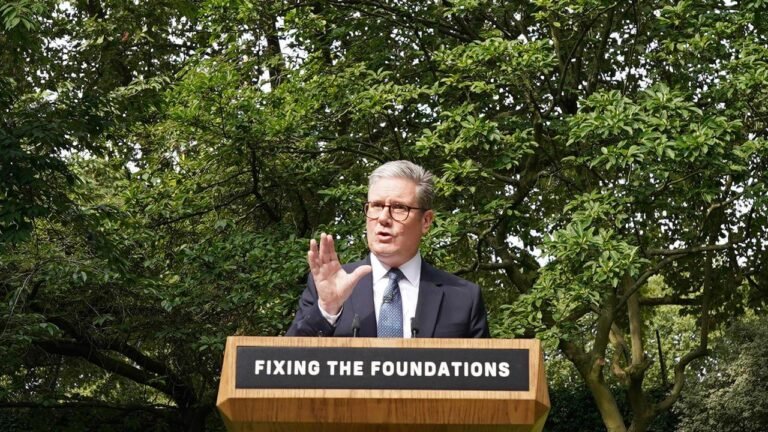Government spokesperson said the U.K. has “no plans” to rejoin European program.
Keir Starmer’s government said it has “no plans” to take Britain back into the EU’s Erasmus+ scheme — dashing the hopes of young people wanting to study abroad.
Britain left the student exchange program as part of Brexit, a decision which prompted anger from academics, youth groups and campaigners, who now want back in.
Warming relations between London and Brussels since the general election had led to speculation that the U.K. could be about to make a comeback.
But a U.K. government spokesperson told POLITICO: “We will work to reset the relationship with our European friends to strengthen ties, secure a broad-based security pact and tackle barriers to trade for the whole of the U.K.
“We also continue to work with the higher education sector to ensure our world leading universities continue to attract the brightest and best and support our economy, however we have no plans to rejoin the Erasmus Scheme.”
Germany’s ambassador to the U.K. told POLITICO earlier this summer that British re-entry into Erasmus should be included in a wider Security and Cooperation Agreement between the EU and U.K.
Starmer on Tuesday flew to Berlin to meet German Chancellor Olaf Scholz to discuss relations between the two countries and talk up a new bilateral deal with the country.
Public support
The government’s comments on Erasmus come as polling commissioned by POLITICO found that 51 percent of British voters believe rejoining the program would be a good idea, with just 15 percent against. Twenty-six percent thought it was neither a good nor bad idea and nine percent said they didn’t know.
The survey, conducted by pollsters at the More in Common think tank, found that supporters of all parties except Nigel Farage’s pro-Brexit Reform UK were supportive of rejoining. Even Leave voters back re-entry by 38 percent for and 26 percent against, while Remain voters are in favor by 68 percent in favor to 5 percent against.
Ahead of the general election the European Commission suggested a “discussion on the possible association of the UK to Erasmus+.”
“Should the U.K. express to associate to Erasmus+, the Commission remains open to look into this process together with our U.K. counterparts,” the EU’s executive said.
Campaigners took aim at the British decision to stay outside the scheme.
“Even Boris Johnson famously assured everyone there was ‘no threat to the Erasmus scheme,’ so it is plainly untenable for the current government to feign any sniff of some inherited mandate for staying out,” said Mike Galsworthy, chair of the European Movement UK and founder of Scientists for EU.
“There should be no barrier now. The British public voted for change. Opening up youth opportunities with Europe is clearly something they’d like to see change on. So the question is — where is it?”
Erasmus+ provides mostly younger people with the opportunity to study abroad across the continent. More than 15 million Europeans have taken part in the program since 1987.
Cost concerns
Johnson’s Conservative government was offered continued associate membership of the program during Brexit talks, but decided against it — citing its cost.
One British diplomat this year put the net expense at almost €300 million a year and strikingly suggested this was in part due to Brits’ poor language skills leading to lower take-up of the scheme than elsewhere.
The U.K.’s new government is keen to tighten the public finances, with Chancellor Rachel Reeves widely expected to deliver a budget including tax rises and spending cuts in October.
Since leaving Erasmus, the U.K. has set up a home-grown system called Turing, which has been criticized for skimping on funding and support.








Leave a Comment